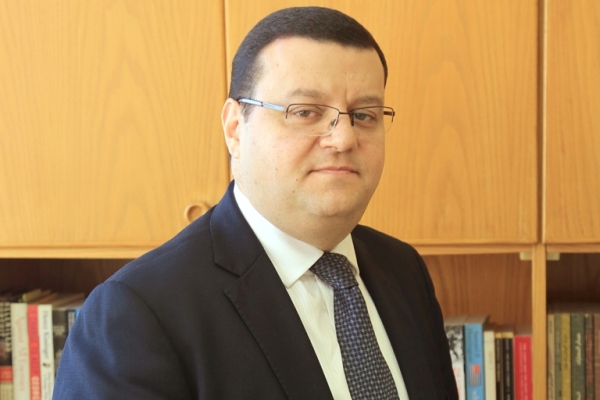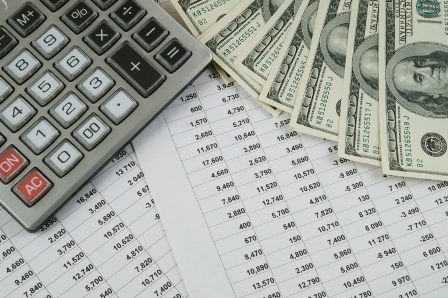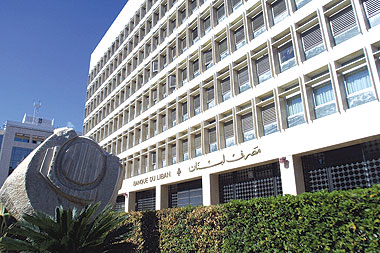Lebanon’s economy set to pay the price again
Rami Rayess/ The Arab Weekly
13 نوفمبر 2017

Lebanon seems to be passing through one of its most severe crises for some time. The abrupt resignation of Prime Minister Saad Hariri, announced from Riyadh via a Saudi satellite channel, Al Arabiya, jeopardised the political compromise that led to the election of Michel Aoun to the Lebanese presidency in October 2016 and placed the country’s economy at direct risk.
Fuelling Lebanon’s woes were the surprise instructions for Saudi citizens to leave Lebanon, hinting at future measures to come. Moreover, while the stability of the Lebanese pound may give comfort to some, other underlying factors, ranging from the country’s refugee population to its ailing infrastructure, may temper Lebanon’s ability to weather the storm.
Plans to address those structural deficiencies, including opening two oil and gas blocks off its coastline for drilling have been placed on hold.
“The council of ministers will not be able to take a decision in the current conditions,” said Nassib Ghobril, the chief economist at Lebanon’s Byblos Bank, of the gas and oil bills.
Compounding Lebanon’s difficulties is the public debt, which exceeds $75 billion — 140% of the gross domestic product, giving Lebanon a debt-to-GDP ratio among the highest in the world.
Historically, one of the principal factors in maintaining economic stability has been the strength of the Lebanese pound, which has been pegged to the dollar since the 1990s. For now, experts seem to agree that the pound remains safe. The Central Bank holds $43.5 billion in foreign currency reserves, which should prove enough to maintain the peg for up to two decades at the current pace of currency conversions.

That notwithstanding, bankers told the Associated Press they had experienced a spike in transactions from pound to dollar among Lebanese accounts since the crisis erupted.
The country’s economy has struggled for some time. Prior to Hariri’s dramatic departure, the prime minister had been understood to have been preparing, along with various other countries (including Saudi Arabia), a donor conference in Paris.
His late father, Rafik Hariri, organised three similar conferences. Differences at home and abroad, however, as well as the Syrian tutelage Lebanon laboured under, severely limited their success.
Now, with its ailing infrastructure, many of Lebanon’s difficulties seem compounded. The country hosts approximately 1.3 million Syrian refugees, who have exerted pressure on its infrastructure and job market.
The influx of money-spending tourists has never reached predicted levels. Accumulating problems in the sectors of electricity, power, telecommunications and other services have not been dealt with. There is widespread knowledge of endemic corruption.

Beyond banking, the country’s one success story, hopes for Lebanon’s economic turnaround have largely rested on utilities and the potentially lucrative prospects of Syria’s reconstruction being staged from the country. However, the oil and gas sector has yet to fully establish itself, while many of Damascus’s construction projects appear to be earmarked for close allies of the regime.
Many underlying economic and financial issues remain hard to resolve while the Trump administration continues to levy sanctions and other punitive measures against Hezbollah and its institutions in Lebanon.
While both the Lebanese president and speaker sought to reassure investors and savers, there were fears that Hariri’s resignation could lead to the introduction of several measures that could jeopardise the economy. Not least among these is the possibility of being frozen out of the international economy as Qatar has been. For years, Lebanon relied upon the largesse of the Gulf Cooperation Council (GCC) and, should that funding source dry up, the country could face real difficulties.
Lebanon and its economy are at a crossroads. How developments unfold will tell a lot about the country’s prospects. What remains certain is that Lebanon is in jeopardy.
 عن أمل جنبلاط المتجدد: لبنان يستحق النضال
عن أمل جنبلاط المتجدد: لبنان يستحق النضال
 صحافيون أم عرّافون!
صحافيون أم عرّافون!
 ماذا يجري داخل أروقة بيت الكتائب المركزي؟
ماذا يجري داخل أروقة بيت الكتائب المركزي؟


 عن الخرائط التي تُرسم والإتفاقات التي تتساقط!
عن الخرائط التي تُرسم والإتفاقات التي تتساقط!
 “الإنحراف في الحياة”/ بقلم كمال جنبلاط
“الإنحراف في الحياة”/ بقلم كمال جنبلاط
 هاشتاغ #صار_الوقت يحل أولاً في حلقة جنبلاط
هاشتاغ #صار_الوقت يحل أولاً في حلقة جنبلاط
 طاولة نقاش عن أزمة الصحافة في جامعة AUST
طاولة نقاش عن أزمة الصحافة في جامعة AUST
 عبدالله: ليظهر لنا وزير مكافحة الفساد حرصه في صفقات البواخر والفيول
عبدالله: ليظهر لنا وزير مكافحة الفساد حرصه في صفقات البواخر والفيول
 عبدالله: غريب أمر وزارة مكافحة الفساد!
عبدالله: غريب أمر وزارة مكافحة الفساد!

 Comment to Uri Avnery: How Sad What Is Looming Ahead
Comment to Uri Avnery: How Sad What Is Looming Ahead
 “Not Enough!”
“Not Enough!”
 … لمن لم يقرأ يوسف البعيني/ بقلم وسام شيّا
… لمن لم يقرأ يوسف البعيني/ بقلم وسام شيّا
 كمال جنبلاط في مولده الأول بعد المائة: تعاليمه وأفكاره ما زالت الحلّ/بقلم عزيز المتني
كمال جنبلاط في مولده الأول بعد المائة: تعاليمه وأفكاره ما زالت الحلّ/بقلم عزيز المتني
 رئيس حزب/ وليس (… سابقاً)/ بقلم د. خليل احمد خليل
رئيس حزب/ وليس (… سابقاً)/ بقلم د. خليل احمد خليل
 التوازن السياسي في لبنان
التوازن السياسي في لبنان
 لبنان… مشاريع انقلابية مؤجلة
لبنان… مشاريع انقلابية مؤجلة
 جنبلاط وحَمَلة أختام الكاوتشوك
جنبلاط وحَمَلة أختام الكاوتشوك
 Le Liban est un symbole de tolérance
Le Liban est un symbole de tolérance
 Our Automated Future
Our Automated Future
 The True Origins of ISIS
The True Origins of ISIS
 Les Misérables vs. Macron
Les Misérables vs. Macron
 عذراً أيها المعلم/ بقلم مهج شعبان
عذراً أيها المعلم/ بقلم مهج شعبان
 رساله الى المعلم / بقلم ابو عاصم
رساله الى المعلم / بقلم ابو عاصم
 إلى روح القائد والمعلم كمال جنبلاط/ بقلم أنور الدبيسي
إلى روح القائد والمعلم كمال جنبلاط/ بقلم أنور الدبيسي
 أسرار وعناوين الصحف ليوم الجمعة 14 كانون الاول 2018
أسرار وعناوين الصحف ليوم الجمعة 14 كانون الاول 2018














